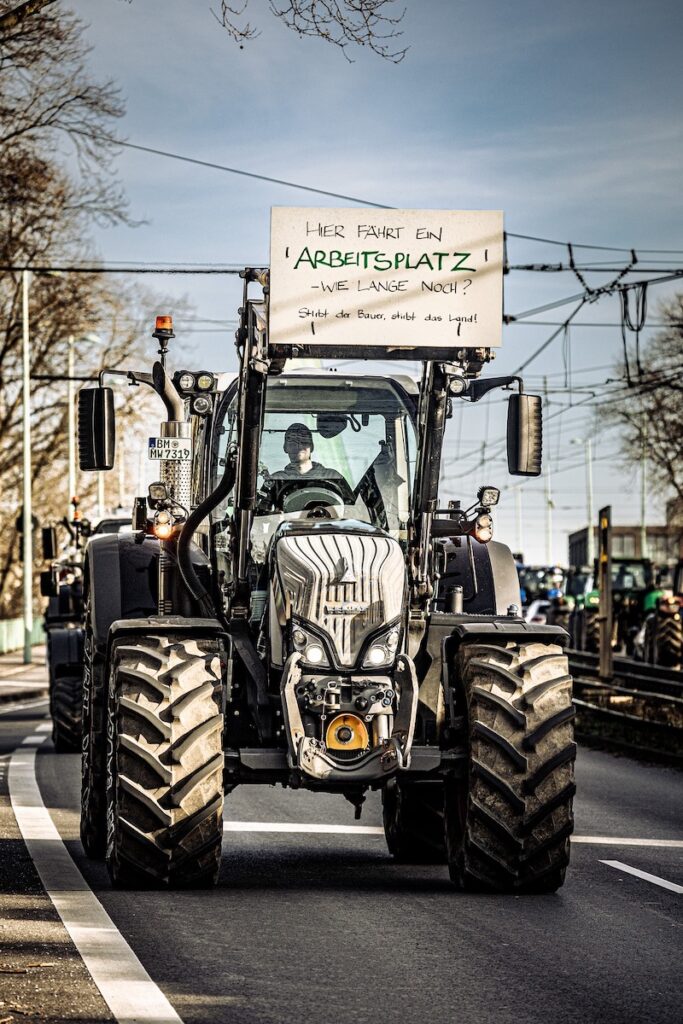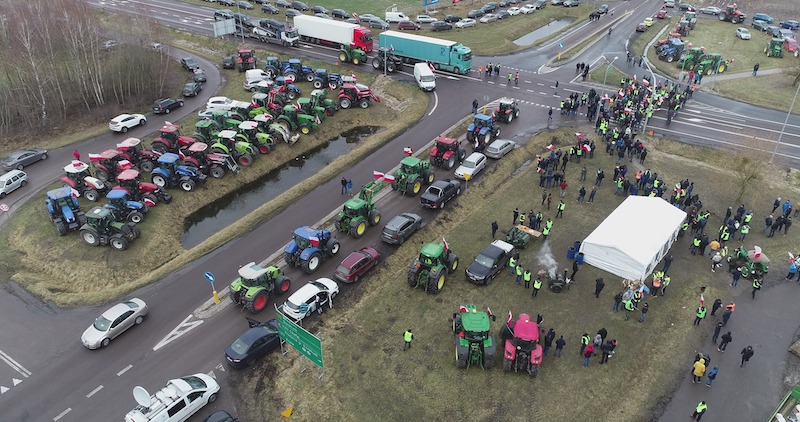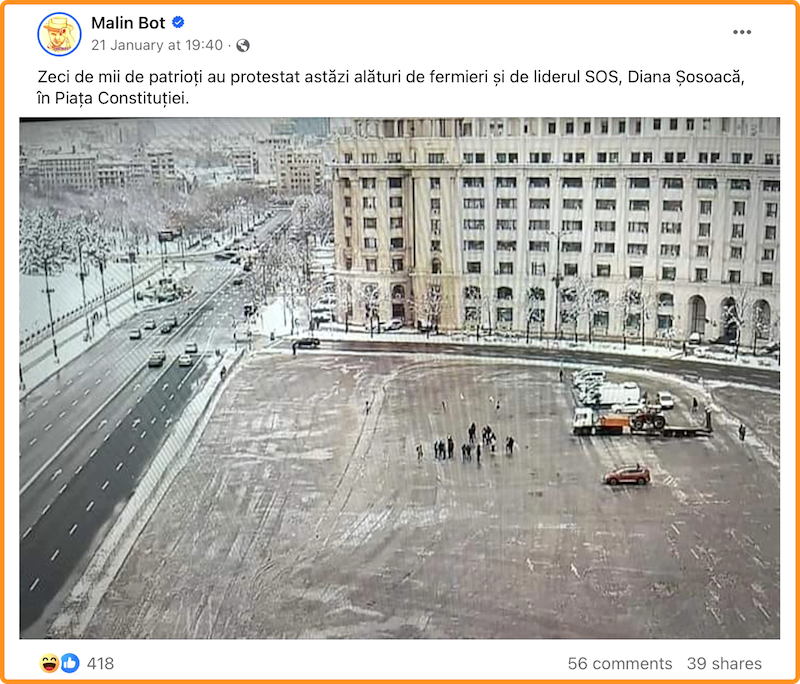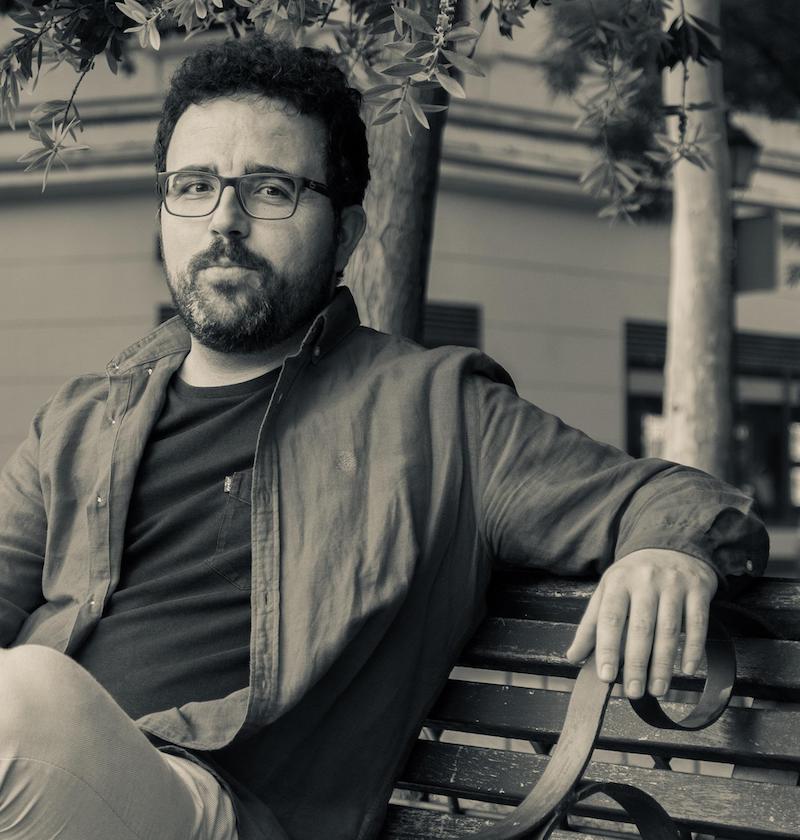The scenes were unruly: earlier this month, demonstrators heckled German economic affairs minister Robert Habeck as he returned by ferry from the island of Hooge off the country’s northern coast, and prevented him from disembarking. Hundreds turned out to voice their grievances, and while the situation did not escalate, it set the scene for a month of intense protests.
Farmers across Germany are angry over government plans to cut their tax breaks, particularly on diesel fuel and vehicle registrations. But while most of the protests, which began in December last year, have been peaceful, some have crossed a line. In cities such as Kassel, Stuttgart and Berlin, a traffic light, symbolising the ruling three-party coalition, was seen hanging from a gallows.
Linking both these incidents is a group known as ‘Landvolk’ – a movement originally founded in the 1920s in northern Germany in response to the agricultural crisis of the time. Their activism ranged from tax boycotts to planting explosives, and helped pave the way for the Nazis.
Today, the Landvolk is back in fashion in some circles. Its flag has been waved at the growing number of agricultural protests.
Far-right parties such as the AfD are trying to capitalise on the farmers’ discontent. They are joining the protests and expressing solidarity. Meanwhile, the German Farmers’ Association has distanced itself from “idiots with fantasies of overthrowing the government”.
For now, experts and authorities see no serious signs of a radicalised farmers’ movement. But even if the extremists remain at the fringe, the situation appears more dire in parts of the German east. In recent years, several villages have been taken over by so-called “ethnic settlers”, who, under the guise of organic farming and nature conservation, propagate the superiority of the German race, while rejecting democratic society. With three eastern German states holding elections this year, vigilance is key.






